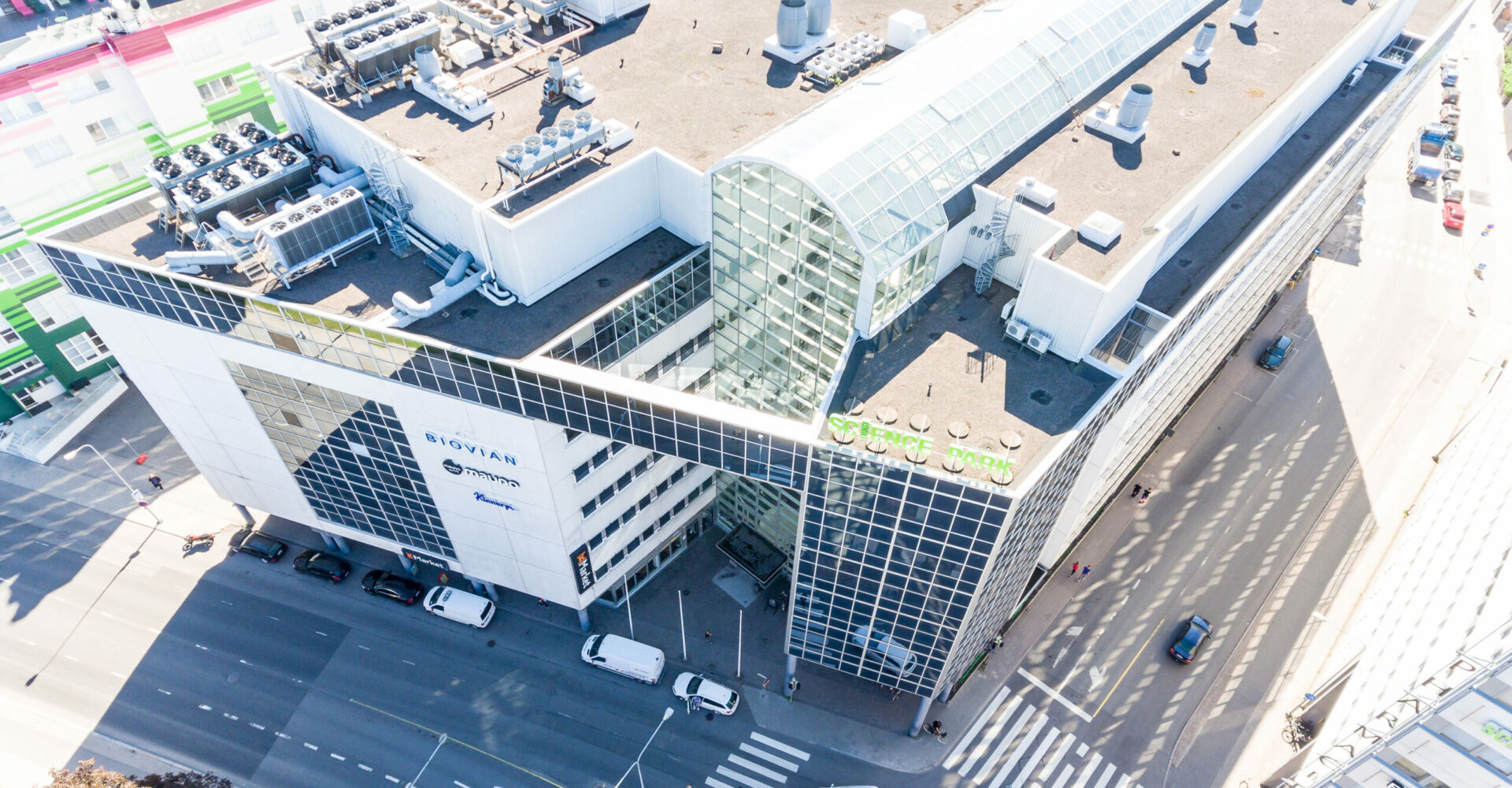Elias Tillandz Prize 2023 Awarded to Scientific Publications in Cancer Research and Archaeology

This year, the Elias Tillandz Prize was awarded to two outstanding research articles, which involved a mechanism related to the migration of cancer cells and a new analysis of a grave dating back to the early Middle Ages. The Prize was awarded to the researchers at the BioCity symposium on Thursday, 24 August 2023.
The Elias Tillandz prize is awarded annually to the best scientific paper published by a research group in BioCity Turku – this year to two equally strong articles. The Prize is €12,000, jointly funded by BioCity Turku and Åbo Akademi University Foundation. This year, the Prize was split between two scientific papers so that each publication received a €6,000 award.
The former Scientific Directors of BioCity Turku, Professor Emeritus Kalervo Väänänen and Professor Emeritus Eero Vuorio, selected the winners from amongst the suggestions made by the research community. BioCity Turku is an umbrella organisation supporting and coordinating research on life sciences and molecular medicine at the University of Turku and Åbo Akademi University.
The Elias Tillandz prize has been named after Professor Elias Tillandz (1640–1693) of the Royal Academy of Turku. Tillandz introduced empirical life science to Finland and published the first scientific study in Turku.
Researchers Studied the Mystery of Cancer Cell Migration
In the first awarded publication, the researchers studied the mechanisms of cell migration and the impact of tissue stiffness on cell location and movement. The research sheds light on how cancer cells spread in tissue and opens possibilities on preventing or directing the migration of cancer cells.
“Migration of individual cells from one place to another is a normal function of the human body. There has been an understanding in the research community that different cell types prefer stiffer tissue when they migrate moving actively towards it. However, when I was on a research visit in the United States, we noticed in cell cultures that certain brain cancer cells can migrate towards softer environments,” says Doctoral Researcher Aleksi Isomursu from Turku Bioscience Centre.
The discovery led to international research collaboration spanning several years where the mechanisms behind the unusual behaviour were studied. Understanding durotaxis, the capacity of cells to detect and migrate along stiffness gradients, is important as it is an essential part of the mechanisms that direct all cell migration in different tissue.
“In the future, understanding the phenomenon can help in developing new therapies, for example, for the prevention of metastases,” explains Postdoctoral Researcher Mathilde Mathieu from Turku Bioscience Centre.
“Our results have stirred a great deal of interest all over the world, and, for example, the Virginia and Barcelona Techs have already created computational models that support our findings. From here, we can move forward with the research and study how the enormous diversity of cancer types and tumours impacts the ability of single cancer cells to migrate to softer or stiffer environments,” says K. Albin Johansson Research Professor Johanna Ivaska, who led the study in Finland.

The awarded article “Directed cell migration towards softer environments” was published in Nature Materials journal in July 2022.
> Read the research article: https://www.nature.com/articles/s41563-022-01294-2
Re-analysis of Archaeological Grave Discovery Reveals New Information about Flexible Gender Roles in the Middle Ages
In the second awarded publication, the researchers re-analysed a weapon grave found over 50 years ago at Suontaka in Hattula, Finland. The study revealed new information about gender roles in the early Middle Ages and about expression of non-binary gender identity. Artefacts which have been interpreted as masculine were discovered in the grave, and the grave has been considered as a double burial of a woman and a man or alternatively a woman’s weapon grave.
The new study confirmed that only one person had been buried in the Suontaka grave, and that the person was wearing clothes typical for a woman of the period and had a handleless sword hanging from their left hip. An ancient DNA analysis on the deceased indicated that the person most likely had sex chromosome combination XXY that causes Klinefelter syndrome. This condition can cause breast growth, decreased muscle mass or infertility in persons who are assigned as male at birth.
“The DNA result in the study is based on a very small amount of data as very little DNA could be extracted from the human remains. We developed a novel computational method that suits such sparse data sets. On the basis of the data, it is likely that the individual found at Suontaka had sex chromosomes XXY. The result was a complete surprise, although a few XXY individuals have been identified in ancient-DNA analyses before this,” says Postdoctoral Researcher in genetics Elina Salmela.
“We can never know how the person identified themselves, but it seems that the people who buried them attached both masculine and feminine attributes to the deceased. As the burial assemblage was ample and careful, it indicates that the person was respected and valued. On this basis, it is relevant to consider the expectations that were related to gender and to question the old binary interpretations of grave goods,” says Archaeologist, Postdoctoral Researcher Ulla Moilanen.


The awarded article “A Woman with a Sword? – Weapon Grave at Suontaka Vesitorninmäki, Finland” was published in European Journal of Archaeology in February 2022.
> Read the research article: https://www.cambridge.org/core/journals/european-journal-of-archaeology/article/woman-with-a-sword-weapon-grave-at-suontaka-vesitorninmaki-finland/33A89DB1D7E4900F017833D87C997D3D
>Read more about the research in the Kalmistopiiri online publication (in Finnish) https://kalmistopiiri.fi/2021/07/16/hattulan-suontaan-miekkahauta-kertoo-varhaiskeskiajan-sukupuoliroolien-joustavuudesta/
More information
Aleksi Isomursu, tel. +358 40 588 0997, aleksi.isomursu@utu.fi
Johanna Ivaska, tel. +358 40 502 0812, joivaska@utu.fi
Ulla Moilanen, tel. +358 40 668 1312, ummoil@utu.fi
Elina Salmela, eltusa@utu.fi
> Elias Tillandz prize: https://biocityturku.fi/elias-tillandz-prize/
